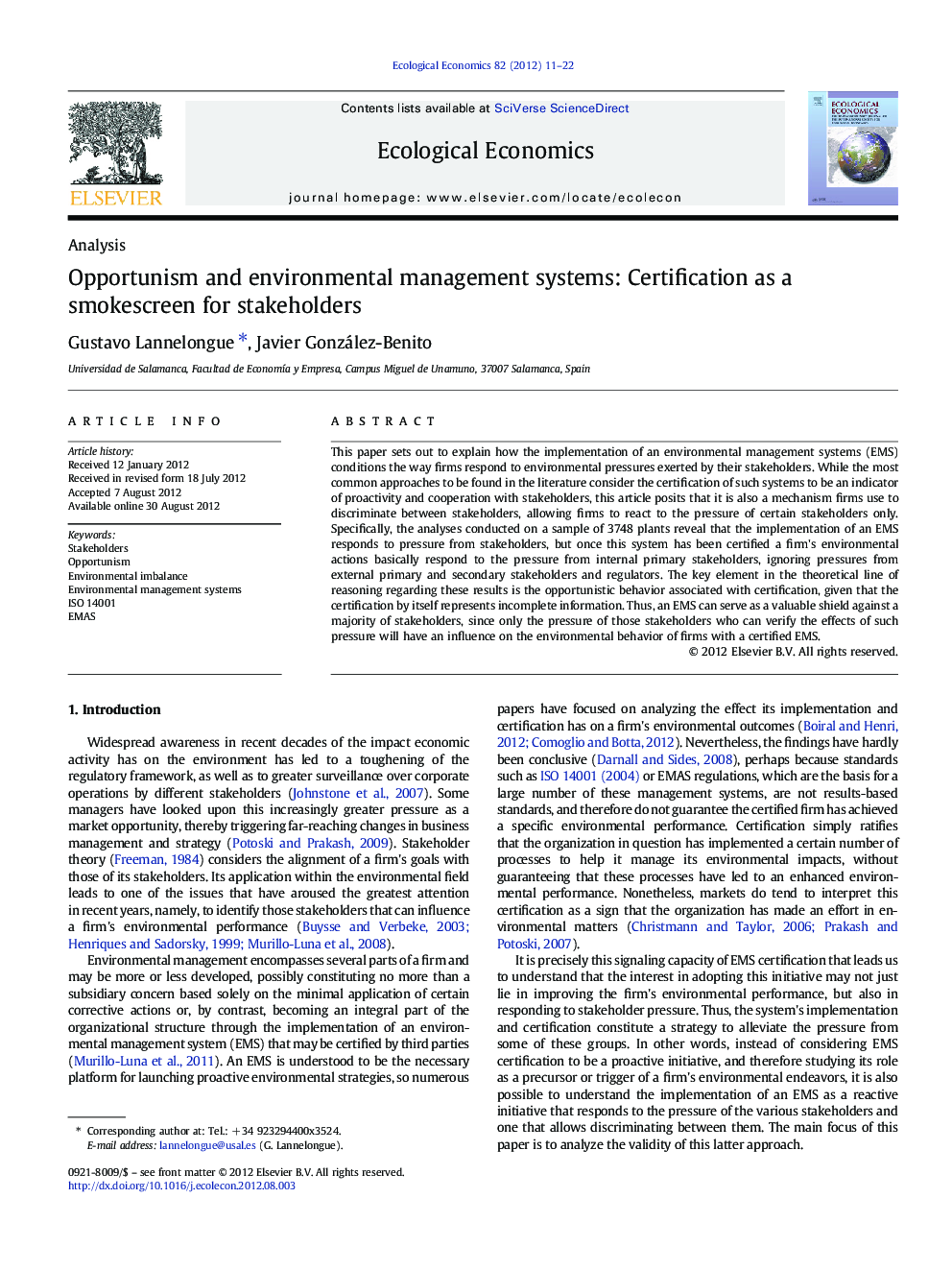| Article ID | Journal | Published Year | Pages | File Type |
|---|---|---|---|---|
| 5050183 | Ecological Economics | 2012 | 12 Pages |
This paper sets out to explain how the implementation of an environmental management systems (EMS) conditions the way firms respond to environmental pressures exerted by their stakeholders. While the most common approaches to be found in the literature consider the certification of such systems to be an indicator of proactivity and cooperation with stakeholders, this article posits that it is also a mechanism firms use to discriminate between stakeholders, allowing firms to react to the pressure of certain stakeholders only. Specifically, the analyses conducted on a sample of 3748 plants reveal that the implementation of an EMS responds to pressure from stakeholders, but once this system has been certified a firm's environmental actions basically respond to the pressure from internal primary stakeholders, ignoring pressures from external primary and secondary stakeholders and regulators. The key element in the theoretical line of reasoning regarding these results is the opportunistic behavior associated with certification, given that the certification by itself represents incomplete information. Thus, an EMS can serve as a valuable shield against a majority of stakeholders, since only the pressure of those stakeholders who can verify the effects of such pressure will have an influence on the environmental behavior of firms with a certified EMS.
⺠Environmental management systems are mechanisms that firms also use to discriminate between stakeholders. ⺠Once these systems are certified, firm's environmental actions respond to the pressure from internal primary stakeholders. ⺠The opportunism of firms will modify the way they react to the pressure using the certification as a shield. ⺠Analyses conducted on a sample of 3748 plants in seven different countries confirm these hypotheses. ⺠The construct 'environmental imbalance' is used to measure environmental proactivity.
